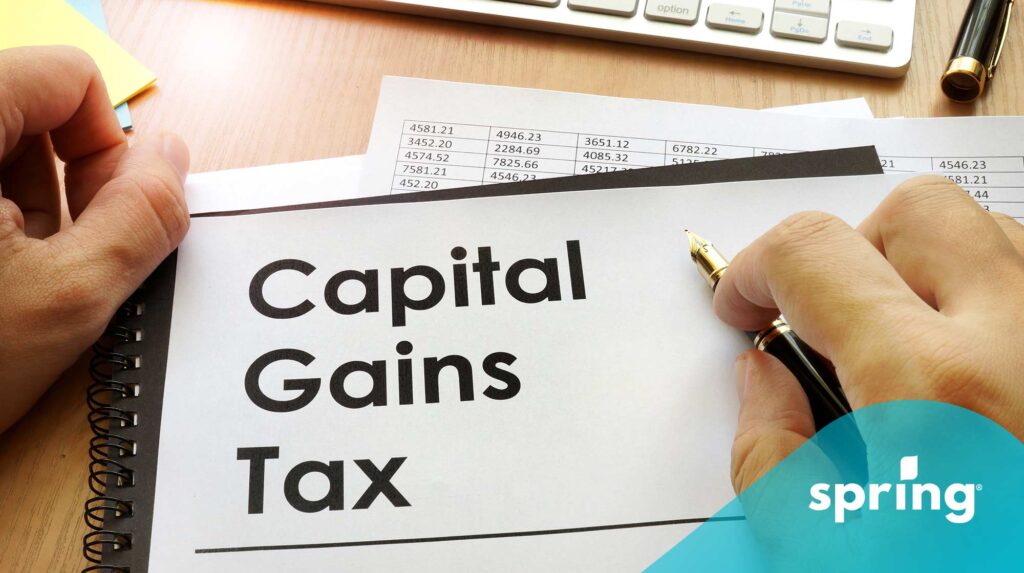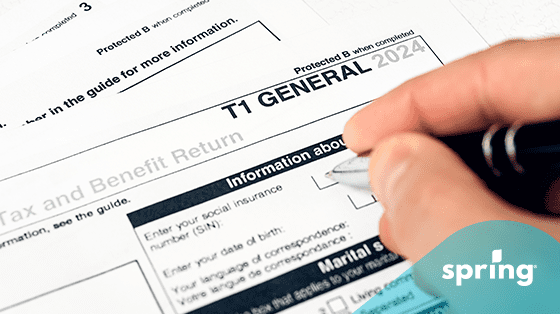Personal Loan Interest Rates
Interest rates in Canada often fluctuate depending on what the current prime rate is with the Bank of Canada. Since the federal government is trying to curb inflation, the interest rates are a bit higher than what we are normally used to seeing. When it comes to getting a personal loan, you are looking at a rate of anywhere from around 8% to 45%. How this rate is determined is based on a few different factors. These included your credit score as well as your debt to income ratio.
It is most common for banks and credit unions to have the lowest interest rates, but private lenders are stepping up to the plate. Just like with any business, their primary goal is to make money. If they give you a loan then they are making money on that interest. Believe it or not, there are more Canadians than you think that have a credit score of at least 700. Because private lenders are now expanding into lower interest rate loans, there is not only more opportunity for them to make money, but more choices for consumers to find a lender that works for them.
The Big Banks and Personal Loans
When it comes to looking for an unsecured loan, the big five banks are usually a first choice. This is because they tend to be comfortable and reliable. They also have interest rates that seem very reasonable. This, however, doesn’t mean that they offer the best personal loans. Oftentimes with larger banks, the more products that you have with them, the lower your interest rate will be.
Sometimes lenders will even require you to purchase insurance on your loan otherwise there will be a higher interest rate. This can add a substantial amount to your loan depending on how much you are borrowing. You also need to consider how long it will take to get a loan. With most banks you are looking at about a week before you have access to any funds.
TD
Right now, if you are looking for an unsecured loan with TD, it is advertised at prime plus 2.99% with prime sitting at 5.45% at the time it was announced. This was advertised in November of 2022 and prime has gone up since then. This makes it likely that a personal loan is now upwards of the 8.44% that was advertised.
While this amount might not seem that high, it is important to keep in mind this is only if you meet the debt to income ratio and credit qualifications. Most large banks like to have a minimum credit score of between 640 and 680 to be approved for a rate like this, but a score of at least 700 is the most ideal. If you don’t meet these qualifications then the rates will likely be much higher.
RBC
With RBC, there are no advertised rates. They advertise that you will get a personalized rate based on your current income and debt situation. This means you won’t know what the minimum interest is or even have an idea of an interest rate before you apply.
They advertise that they offer a skip payment option and you can choose whether you want your loan term to be as short as one year or as long as 5 years. They also advertise that they have fixed or variable rates. That being said, the requirements to get a personal loan with RBC are much stricter than other big banks so it can be much more difficult to qualify for their best interest rate.
Scotiabank
As of December 8, 2022, the advertised prime rate for Scotiabank is 6.450%. With that in mind, the rate you will end up with for a personal loan will depend on what you are approved for based on your individual financial situation.
CIBC
Just like some of the other larger banks, CIBC doesn’t mention any personal loan rates on their websites. You won’t have any indication of an interest rate until after you have filled out an application.
That being said, CIBC does have a personal loan minimum of $3,000, which is actually quite high. Many people who are looking for a personal loan are only looking for anywhere between $500 and $2,000. Their personal loans do go up to $200,000 but there would be plenty of restrictions to go with that much money.
BMO
Personal loan rates with BMO also aren’t advertised on their website. After you apply you will then receive an offer. This makes it difficult to know if you would be approved for a lower interest rate somewhere else or not. They would also have to do a hard credit check which can have a negative affect on your credit score, if you get too many. You shouldn’t have more than six in a calendar year.
Low Interest Rate Loans and Private Lenders
Many people think that private lenders are meant for only bad credit personal loans. While that is technically true, they also do offer loans for those with good credit. Many private lenders are now starting to offer loans at interest rates that rival the big banks. Let’s take a look at one example.
Spring Financial
At Spring Financial, you can get a personal loan ranging between $500 and $35,000, for as low as 9.99% APR. Not only that, there are no penalties for paying off the loan early. Unlike traditional lenders, Spring allows you to do the process online, over the phone or through text message. In most cases, you can receive the funds the same day you get an approval.
While you are still required to have a decent credit score and credit history, they tend to be much more lenient than most larger financial institutions. The convenience alone is much nicer than having to go to a branch or wait a week for the funds you likely need right away.
On the Spring website is a personal loan calculator. This will help to determine what your payments and interest rate will look like based on a few factors. While this isn’t an accurate determination of your monthly payment and approval rate, it will show you what your payments would look like in all different possible scenarios.
Low Interest Rates and Bad Credit
While getting a personal loan with bad credit isn’t as difficult as you may think, you are likely to have a much higher interest rate if you don’t have a decent credit score. While some personal loan lenders will allow you to have a lower interest rate with a minimum credit score of around 620, anything under 600 will end up having a much higher interest rate.
Personal loan providers will give loans to those with bad credit, but at a higher interest rate. While this isn’t always ideal, it’s much better than a payday loan which doesn’t increase your credit score at all. Payday loans also have much higher interest rates. With an unsecured personal loan, you would be improving your credit score whenever you make a payment on time. By increasing your credit score you are allowing yourself to get a loan with a lower credit score in the future.
While this may not seem like much, unsecured personal loans are considered to be one of the most powerful forms of credit building. This is because there is no collateral attached to the loan, and the lender is essentially betting on you to pay the funds back.
Average Interest Rate on a Personal Loan
According to the Bank of Canada, the average interest rate on a personal loan in Canada is 8.45%. It is important to remember that this number is deceiving because it includes secured loans and unsecured loans. Secured loans often have significantly lower interest rates than unsecured loans.
With all that said, 8.45% is still pretty high for a loan average, especially since we are used to having a much lower interest rate. While it is still unpredictable what could happen to our interest rates, it isn’t likely they will drop anytime soon.
How To Qualify for a Low Interest Loan
Whether you are applying through a bank, credit union or a private lender, the requirements to get approved for a low interest rate loan stay virtually the same. While the exact specifications may be different, the general premise is the same. In order to even be considered with any lender, you have to be the age of majority (18 or 19 depending on your province) and be a Canadian citizen or permanent resident. From there the lender will go over the other requirements.
- A good credit score. While it is recommended to have a credit score of at least 680 to get a low interest rate, you may be able to qualify with a 620. The lender will take into account more than just your credit score though. What is on your credit report will make a big difference as well.
- Low debt to income ratio. In order to get a low interest rate, lenders like you to have a debt to income ratio below 40%. This means that 40% or less of your monthly income goes towards your monthly payments. These include mortgage payments and minimum debt payments. Rent payments are calculated separately.
- Stable source of income. While it is not necessary to be employed to get a personal loan, you do have to show that you have a stable source of income. Lenders like to see around 3 months of stable income. If you have just started a new job, it usually doesn’t make a difference if you were working steady up until you started the new position.
- Net worth. Lenders will often look at your total net worth to help them decide what you can reasonably afford. This is often why people who own their own home can borrow more than those who don’t.
- Low number of credit checks. Anytime you do a hard credit check it can deduct anywhere from 5 – 15 points from your credit score. If you are looking for a loan and a lender notices there are a lot of credit checks on your report, this can be seen as a red flag. To them this says you either have a lot of debt or other lenders were not willing to take a chance on you.
- Total monthly or yearly income. Most lenders, on top of requiring steady income, also require you to meet a monthly income minimum. This usually ranges from $1,200 to $1,500 per month. Many lenders will automatically decline you if you fall under this minimum, even if you meet all of the other requirements.
Easiest Bank to get a Personal Loan
Getting a personal loan isn’t as difficult of a process as it may seem, but it isn’t as simple as opening a bank account either. That’s why it can be much more difficult at a major bank. They often only give personal loans to those with high credit scores. Credit unions can be a little more lenient, especially if you have been a long time customer with them or have a few other financial products.
If you are looking for debt consolidation loans, and all of your loans are with the same bank or credit union, there usually isn’t an issue with an approval since they are just transferring their own funds into a better rate. That being said, that doesn’t mean you won’t get approved and get a better rate elsewhere.
If you haven’t taken a lot of loans, don’t have a good relationship with a major financial institution, or are just looking for a banking alternative that still offers low interest personal loans, a private lender like Spring may be the best choice. As we briefly mentioned, a private lender is often more lenient than a large bank and they can also be a bit more flexible. Not only that, you can receive your money much faster. Being that it is still considered a financial product, most private lenders report to the credit bureaus, allowing you to build your credit score while still getting the funds that you are looking for. Even though, in any of these situations, you may not get the interest rate that you were hoping for, you are setting yourself up to get a better interest rate the next time that you need to borrow funds.
Documents Required for a Personal Loan
When applying for a personal loan, lenders will ask for documentation to prove that you are able to afford the loan, as well as meet their qualifications. These documents also help them to determine the interest rate you would qualify for, if you qualify.
The first thing they would ask for is proof of employment. So this would be paystubs or a letter of employment. A letter of employment is unusually only required if you have just started a new position or your paystub doesn’t contain all of the information the lender requires. The most likely case of this is the company’s name not being on the paystub.
The next thing they are going to ask for is a piece of government issued ID. Most personal loan providers will not take a health card as ID, so you will need either a drivers license, a passport, or a provincial ID card.
After your employment and ID have been verified, most lenders will also require 90 days of bank statements. This shows what goes in and out of your account every month, proving you could afford the loan payments. If you are applying with an online lender, they have a verification tool that will provide this information as well as a direct deposit slip just by signing into your online banking. Not to worry, this technology is completely secure. If you are not using this tool then you will need to provide a direct deposit form along with the bank statements. This form allows the lender to take out your personal loan payments on the agreed upon dates.
Another thing they will require, if your address on your ID isn’t the same as your permanent address, is proof of address documents. Some lenders may require this either way. This is usually something like a credit card bill or a utility bill. It can even be a rental agreement if it is current within 6 months or so.
Personal Loans and Extra Fees
There aren’t many extra fees that can get tacked onto a personal loan, but the most common to watch out for is loan insurance. This is insurance that will cover your loan payments in the event that you cannot make your payments due to job loss, critical illness, accident or even death. For many lenders this is an optional payment. Other lenders may offer a lower interest rate if you accept the insurance. While this insurance can be beneficial, if you already have life insurance or something similar, you may not need it. An insurance like this can cause thousands so it is important to keep that in mind when you are signing for your loan.
Another fee you may notice with most personal loans is an application fee or a documentation fee. Not all lenders charge this fee, but if they do it will be on your loan paperwork. While this is usually only between $50 and $75, it is still something you have to consider.
Don’t forget that there are also late fees associated with missing a payment. Lenders will sometimes charge a late fee of 3-5%. On top of that your bank will normally charge a late fee which is around $50.00. These can usually be avoided if you call the lender beforehand and let them know you are unable to male a payment. They are usually very flexible and can defer your payment or waive any late fees.
Is There Such Thing as an Interest Free Loan?
No, personal loans don’t come interest free. If that is the route you intend to go then you will pay some interest. That being said, there are credit cards that will be interest free for a certain period of time, usually up to two years. These are most often seen with furniture and appliance companies. If you intend to pay the money back quickly and are using the money for an item that qualifies for this option, it may be a good alternative to a personal loan. Keep in mind that once the interest free period on these cards expire, the rate is much higher than that of a regular credit card so it is important to pay this off on time if you choose to do this.
A Personal Loan with Spring Financial
Applying for a loan with spring is easy. You can apply directly online and receive an approval quickly. Once you have the approval and accept the offer, you can get your money as soon as the same day. If you prefer a direct deposit, we can get you the money in one to two business days. Whether you are looking for a debt consolidation loan, need to pay some bills, want to make a large purchase or just need some extra cash, there are no limits as to what you can use your personal loan for. So if you need money, are looking for a great interest rate and don’t want to wait to receive your funds, apply today!








